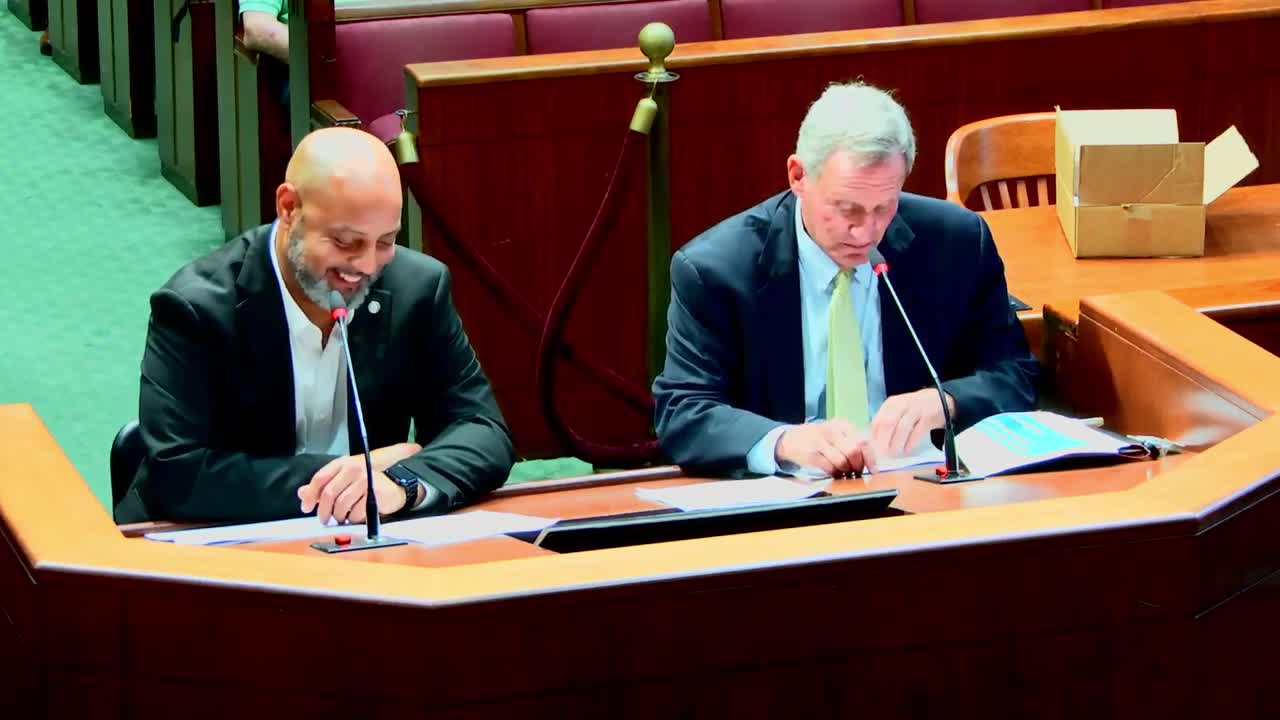Houston updates Harvey homebuyer rules, tightens single‑family construction standards
Get AI-powered insights, summaries, and transcripts
Subscribe
Summary
Housing staff described a non‑substantial amendment to the Harvey Homebuyer Assistance Program (HBAP 2) that adds cryptocurrency to liquid‑asset guidance and outlined strengthened local construction and warranty standards for single‑family homes built through city programs.
Assistant Director Cedric Lassane told the Housing and Affordability Committee on Oct. 21 that the department approved a nonsubstantial amendment to the Harvey Homebuyer Assistance Program (HBAP 2) guidelines to list cryptocurrency as a nonexclusive asset in the liquid‑asset section. The General Land Office reviewed and approved the amendment on Aug. 15, 2025.
Lassane said HBAP 2 provides down‑payment assistance, closing‑cost help and principal/interest buy‑downs for eligible low‑ and moderate‑income and urgent‑need homebuyers who meet the program’s first‑time homebuyer definition; residents affected by Hurricane Harvey (Aug. 25, 2017) remain eligible to apply.
On single‑family construction standards, Lassane and Director Nichols said the department has raised minimum requirements to improve durability and resilience. The department now requires Energy Star certification for homes built in these programs; insulation targets of R‑49 in attic spaces, R‑15 in walls and R‑19 for elevated homes; Energy Star–compliant windows; and mold‑ and mildew‑resistant products where practical. The department also said it is specifying brick veneer and cast stone in some designs, engineered foundations for flood‑prone areas, gas and electric connections, and accessible entries or ramp/lift design options.
Lassane said the department requires a two‑year workmanship warranty, two‑year mechanical warranty covering electrical, plumbing and HVAC, and a 10‑year structural warranty on homes constructed through city programs. He described a warranty packet the builder must provide to homeowners at close that includes contact information for the builder and subcontractors and said homeowners should both contact the builder and notify the housing office if an item is not resolved.
Council members asked about cost impacts. Lassane said typical program pricing has been near $250,000 and that prices for homes produced through the New Home Development Program are set by prior sales and broker opinions; he said the department’s target “sweet spot” for many buyers is about $215,000–$228,000 without additional assistance. He told the committee the 2021 International Energy Conservation Code (IECC) is the municipal code baseline and the department’s standards intentionally go above that baseline.
Public commenter Doug Smith asked why the department would build single‑family homes in flood‑prone areas and whether a punch‑list and substantial‑completion process were used. Housing staff replied that engineered foundations are required in flood‑prone areas and that a punch‑list/substantial‑completion inspection and homeowner sign‑off are part of the closeout process for new homes.
No vote or ordinance adoption was recorded in the committee transcript; the presentation was informational and committee members said they would review guidelines when they next come to council for action.
